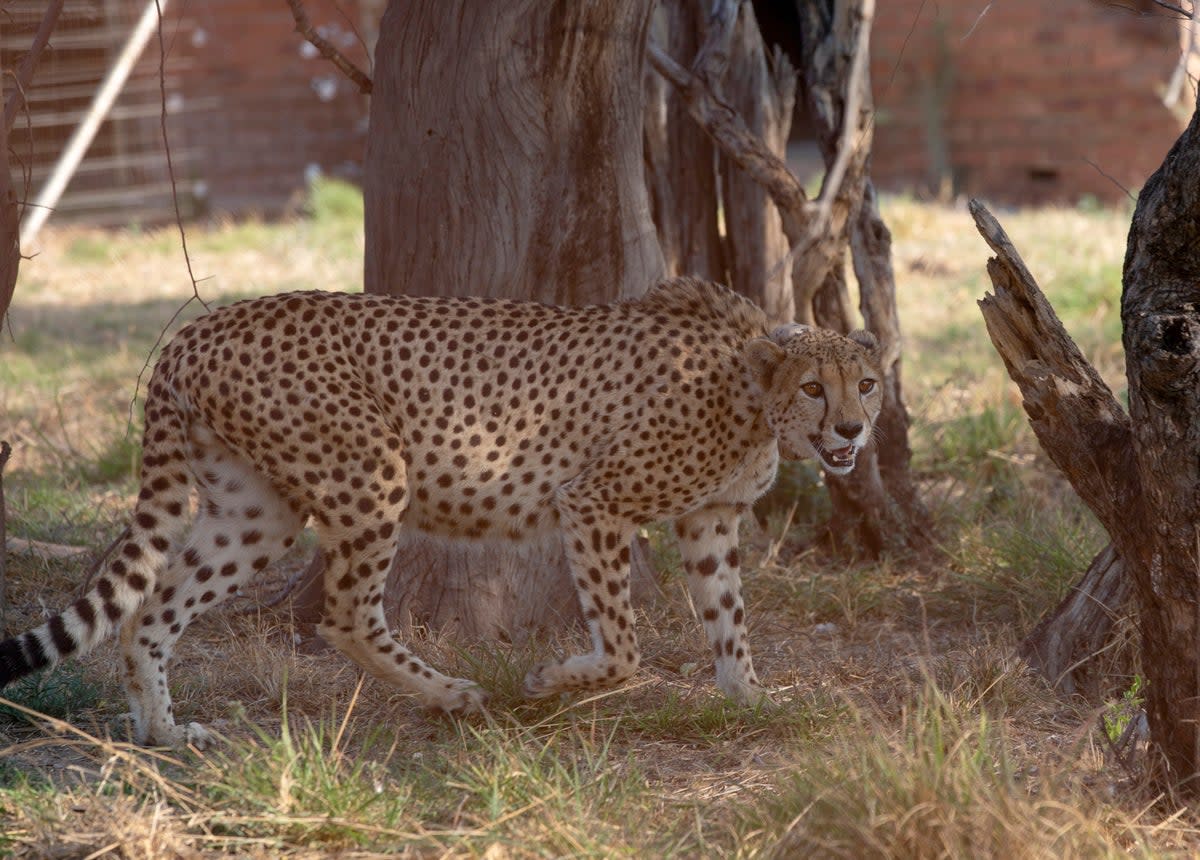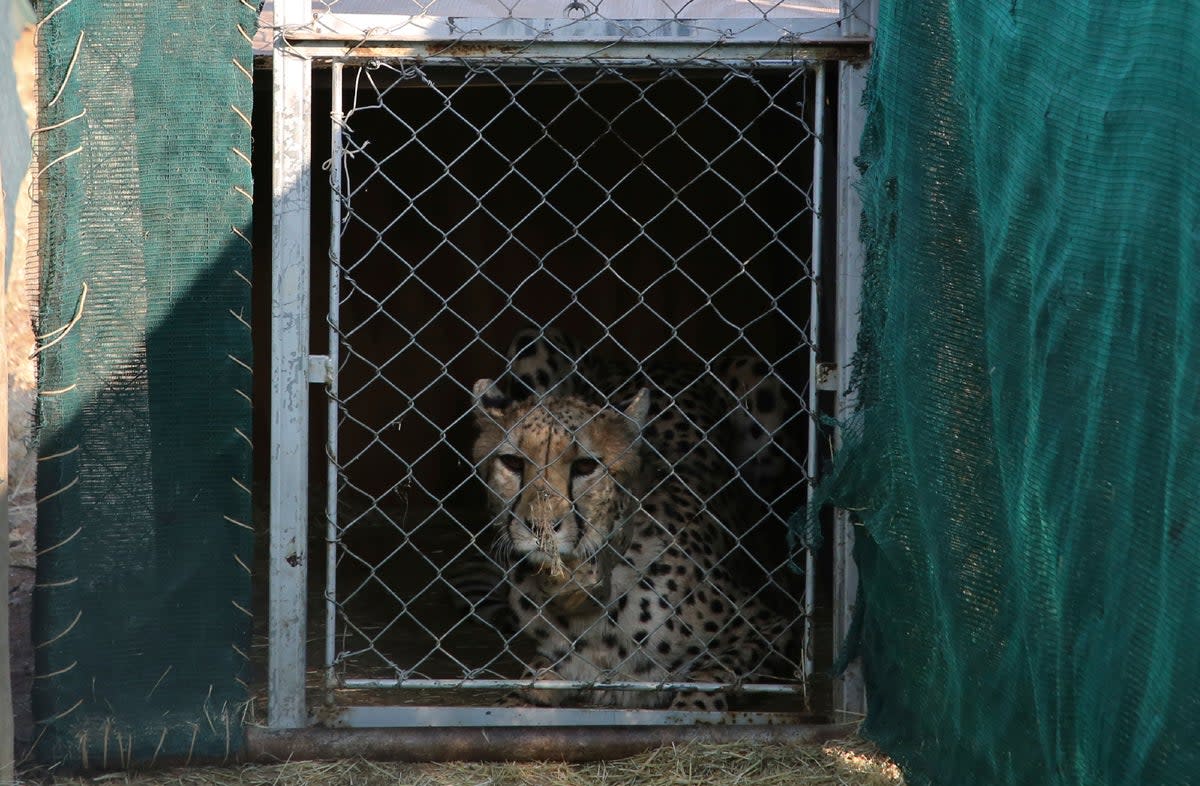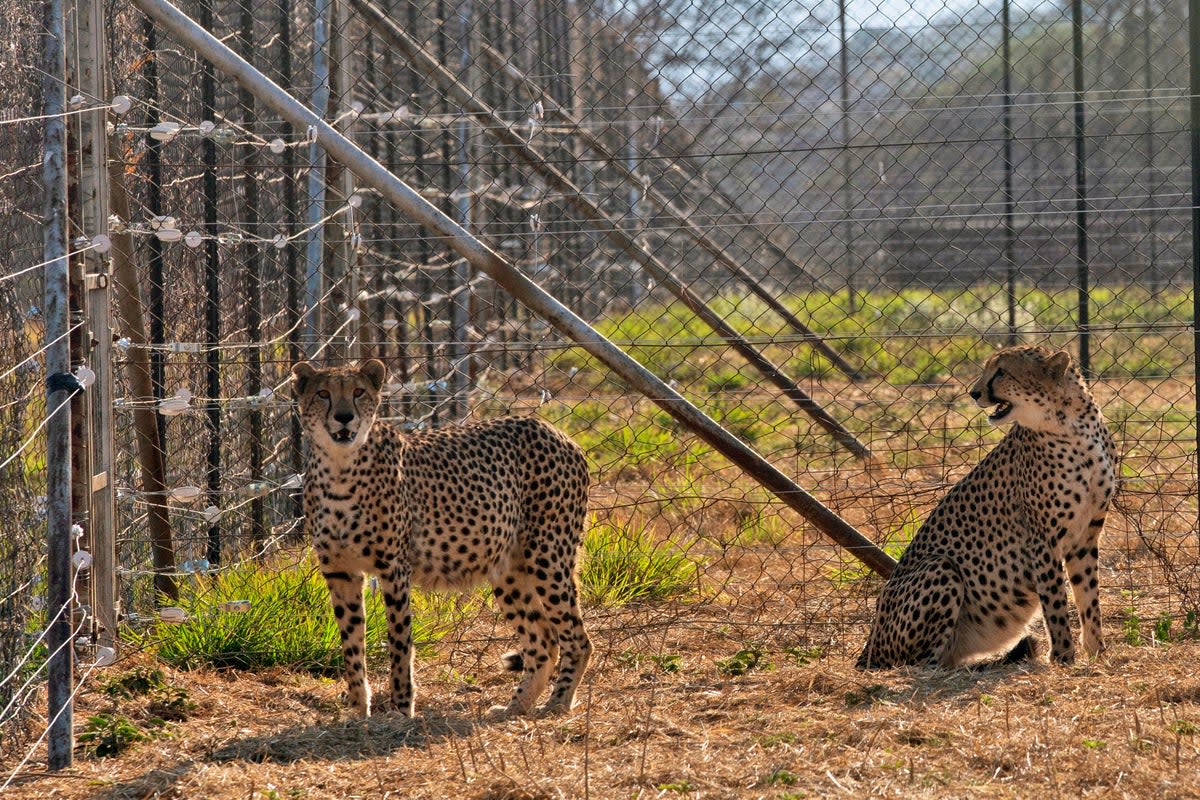Seventh Indian cheetah died of ‘traumatic shock’ after fight with female, post mortem shows

Indian officials have revealed the cause of death after a seventh fatality in the country’s project to reintroduce cheetahs to South Asia, decades after they went extinct in the wild.
The death of adult male Tejas was caused by “traumatic shock” triggered by injuries from a violent interaction with a female cheetah also present in the same enclosure, officials have said.
They said the animal was already ailing and weak.
“The cheetah suffered a traumatic shock and died shortly after the female inflicted injuries on his neck, which were found to be superficial and not deep enough to cause his death,” principal chief conservator of forests JS Chouhan told The Independent.
The injury is not the standalone reason because Tejas, weighing 43 kgs at the time of autopsy, was a compromised cheetah. It was found that his lungs, heart, spleen, and kidney were not normal during the autopsy on Wednesday, the forest official said.
“There was accumulation of chicken fat and coagulated blood was also found in the aorta and auricle of his heart. His kidney appeared pulpy and emphysema and white coloured nodules were found in spleen,” he added.
Mr Chouhan added: “He was already down and ailing from internal infections, and possibly could have died sooner if not for the violent interaction.”
It is unclear if the two animals tried mating and the female cheetah resisted the forced mating attempt from Tejas as no official was around the enclosure on Tuesday morning at the time of the violent interaction, the official added.
“Circumstances are unclear, we cannot say with certainty that the female attacked Tejas to stop mating,” he said.
The female cheetah borrowed from Namibia, however, carries limited hunting skills and has not shown any violent tendencies, Mr Chouhan said on being asked about previous signs of any violent interaction with other wild cats, including Tejas.


The autopsy was conducted at a wildlife hospital on Wednesday afternoon by three wildlife doctors posted in the Cheetah Project and experts from School of Wildlife Forensic and Health, Jabalpur and senior wildlife doctor from Van Vihar National Park, Bhopal.
Tejas is the seventh cheetah India has lost since the start of an ambitious translocation project that aims to revive the wildcat’s population in South Asia, 70 years after it went extinct.
He was brought to India in February this year.
Four of the original 20 cheetahs have now died, and another three cubs born to one of the adult females did not survive. A fourth cub is being bred in captivity and so will not be a part of the project in future.
It comes just two weeks after India nearly lost another cheetah after a violent territorial altercation between two coalitions formed by the big cats.
One expert questioned the official explanation that Tejas died after sustaining injuries while mating, with cheetahs known to be among the most gentle and least aggressive of the big cats.
Valmik Thapar, a senior Indian wildlife conservationist who has monitored cheetahs in Africa for 25 years, called on the Kuno authorities to stop keeping two or more of the animals together in limited space.
“Cheetahs do not kill while mating as they are very careful big cats. Females never kill males and males never kill females in the wild. Such fatal encounters occur only if cheetahs are forced together in one enclosure,” he told The Independent.
He pointed to a previous instance where India lost a female cheetah in May after it suffered injuries during an interaction with two male cheetahs that turned violent, making it the third such death within 50 days.
Repeated instances like this are signs of poor management, negligence and a lack of understanding of the animal, he said.
“It also shows that these cats are still in enclosures and bad management is leading to fatalities on what is a flawed operation of reintroduction, because in the wild it is very, very rare for cheetahs of any sex to kill or injure each other.”
